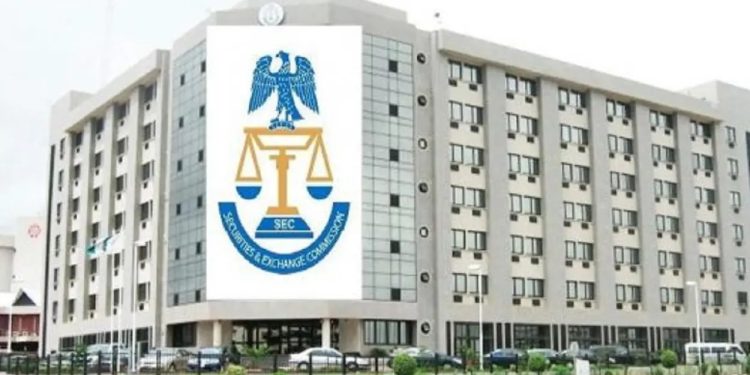The Securities and Exchange Commission (SEC) of Nigeria has put forward a proposal to raise the minimum paid-up capital for virtual asset service providers (VASPs) to ₦1 billion, doubling the previous requirement of ₦500 million. This significant increase in capital requirement is aimed at regulating the operations of virtual asset companies, including cryptocurrency exchanges, peer-to-peer platforms, and over-the-counter (OTC) desks.
The proposed minimum paid-up capital encompasses bank balances, fixed assets, or investments in quoted securities. VASPs are essential entities within the cryptocurrency ecosystem, facilitating the exchange, trading, and management of digital assets.
According to reports, cryptocurrency operators received the draft proposal from the SEC, signaling a potential shift in regulatory standards for the industry. Initially, in 2022, the SEC had proposed a minimum paid-up capital of ₦500 million. However, the recent proposal of ₦1 billion has sparked reactions within the cryptocurrency community.
Rume Ophi, a crypto expert, interpreted the SEC’s move as signaling a preference for larger players in the industry. Concerns have been raised by local operators, with some expressing apprehension that the proposed capital requirement may disproportionately disadvantage smaller players and favor foreign-owned companies.
A crypto exchange operator, speaking anonymously, voiced skepticism regarding the proposal, suggesting that it could lead to foreign dominance in Nigeria’s crypto space. The implications of such regulatory measures on the competitive landscape and market dynamics are subject to ongoing debate.
In addition to the increased capital requirement, virtual asset companies would need to provide a current Fidelity Bond covering at least 25% of the minimum paid-up capital. A fidelity bond serves as insurance against losses resulting from employee fraud, theft, or forgery.
Furthermore, the SEC’s proposal includes provisions for imposing additional financial requirements on digital asset operators based on the nature, operations, and associated risks. The regulatory framework aims to ensure orderly, fair, and transparent market practices within the securities and derivatives trading domain.
The commission has also outlined an expanded set of documentation requirements for registration, including a sworn undertaking from applicants regarding their commitment to operating a transparent market. These measures reflect the SEC’s efforts to enhance oversight and risk management within the burgeoning virtual asset sector.
As stakeholders engage with the SEC’s proposal, discussions continue regarding the potential impact on market accessibility, competition, and regulatory compliance within Nigeria’s evolving cryptocurrency landscape.










